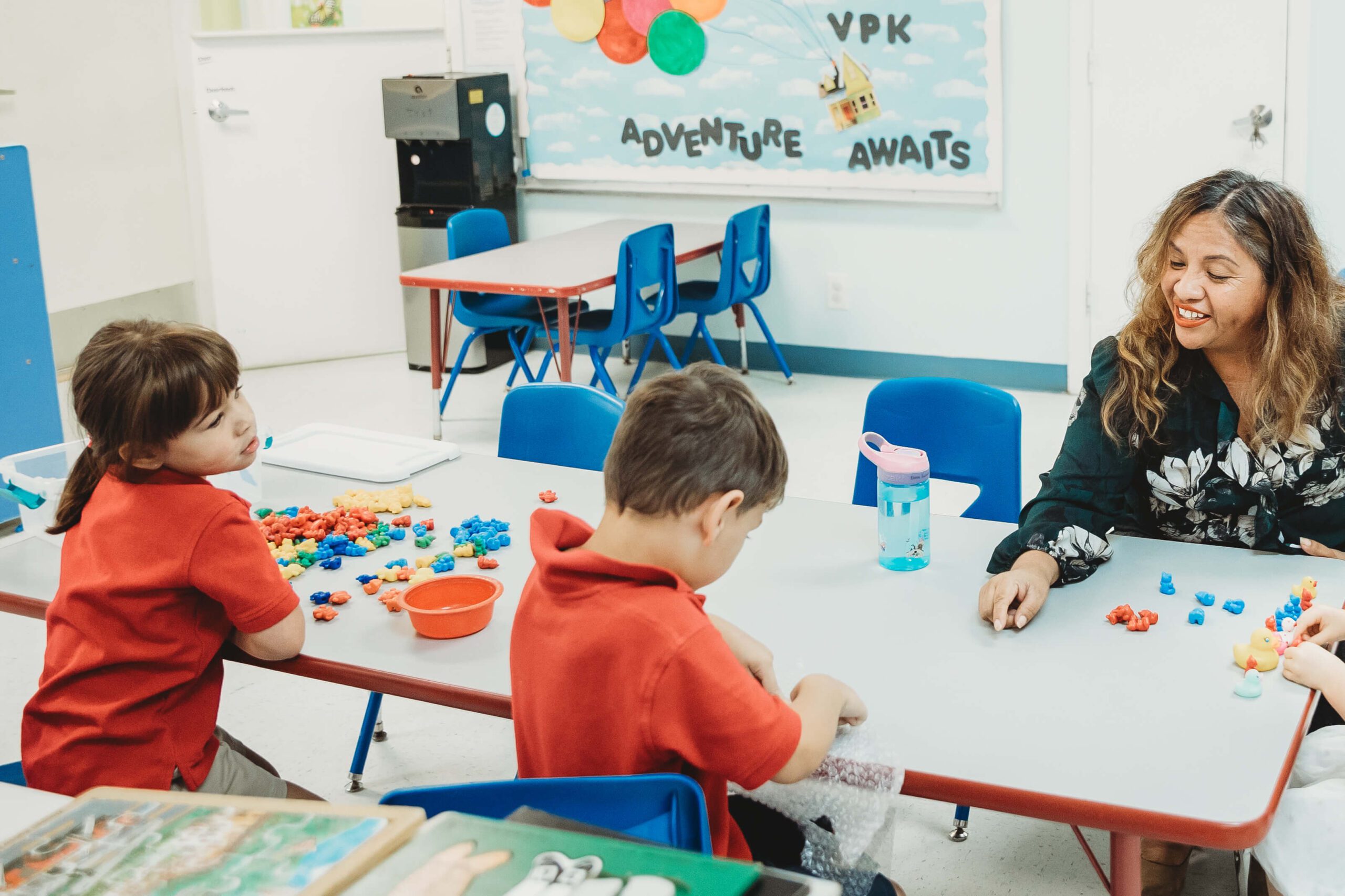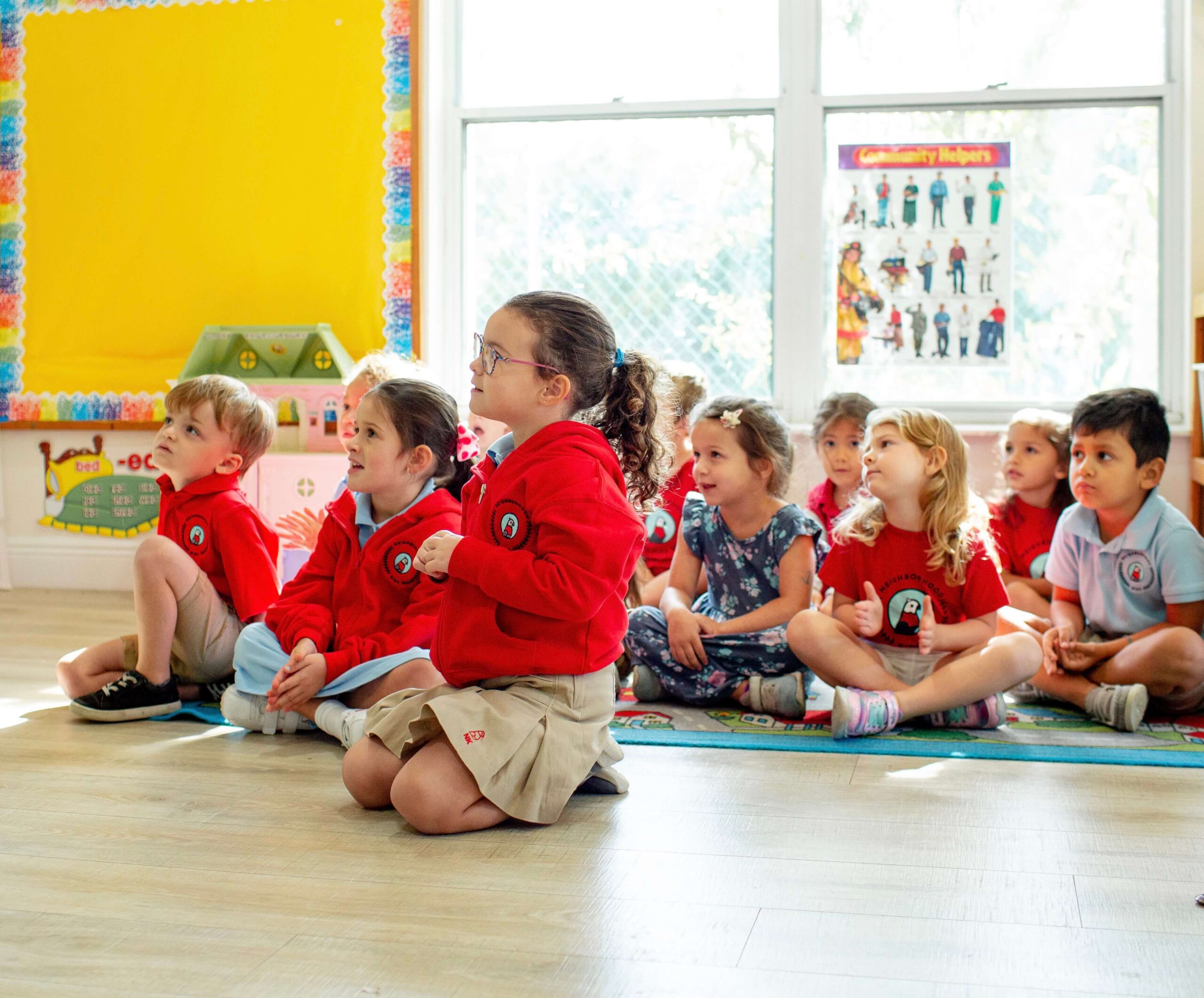Have you ever wondered why your kid was extra clumsy? Although often overlooked, learning fine and gross motor skills is an integral part of early childhood development. Finding a Christian preschool in Lake Worth that offers activities and challenges to accompany growth is key to fostering this process.
From activities within regular classes to enrichment activities, we do several things with your child to help them fine-tune their new abilities—and you can do them, too! We created this guide to help you understand this crucial moment of growth and find ways to foster it.

What Are Fine and Gross Motor Skills?
Early childhood is a crucial moment in your child’s growth. Their abilities grow as they interact with the world around them and learn to understand it. You may notice they’re getting better at asking questions (about everything!) and much more interested in analyzing their toys without sticking them into their mouths.
A significant milestone is acquiring fine and gross motor skills. Have you ever noticed that your baby was extra clumsy? That’s because they’re still learning how to use their body in their environment. Think of when you started driving; you probably were extra slow as you were still figuring out the dimensions.
Developing motor skills allows children to become more independent and freer to interact with their environment. Although both abilities involve movement, they have some distinctions:
- Gross Motor Skills: Movement of the bigger muscle groups like arms and legs. These bigger muscular groups teach babies to sit up, roll over, crawl, and walk.
- Fine Motor Skills: Movement of the smaller muscle groups in your child’s hands, fingers, and wrists. These fine motor abilities allow them to write, get dressed, or brush their teeth.
What Are the Most Important Fine Motor Skills Kids Develop?
While gross and fine skills are both important, the latter is particularly essential because they enable children to care for themselves without help by using the smaller hand muscles. The most important skills children need to develop are:
- Palmar Arches: Kids learn how to curve their palm arches inward. Strengthening this area teaches finger coordination, which opens the door to activities like gripping, writing, and unbuttoning clothing.
- Wrist Stability: This develops during early school years, allowing kids to gain control of their fingers.
- Skilled Side of the Hand: Learning to use the thumb, index finger, and other fingers in coordination for precision grasping.
- Intrinsic Hand Muscle Development: The ability to make little hand movements where the tip of the thumb, index finger, and middle finger touch.
- Bilateral Hand Skills: The ability to coordinate both hands simultaneously.
- Scissor Skills: Developed by the age of four, scissor skills teach kids hand strength and hand-eye coordination.

When Do Kids Start Developing Fine and Gross Motor Skills?
It is natural for children to develop their fine and gross motor skills at their own rate; some will do so sooner than others. These abilities typically develop in babies as early as one or two months of age and continue to grow throughout preschool and the first few years of elementary school.
Here’s a short chronology of fine motor milestones for babies and toddlers:
- Between 0 and 3 months, kids start placing their hands in their mouths and learning to relax them.
- Between 3 and 6 months, children start to learn how to hold hands together, move toys from one to another, and hold and shake toys.
- Between 6 and 9 months, kids begin to grasp things by “raking” with their hands, learn to squeeze objects with both hands, use their index fingers to touch things, and even clap their hands.
- Between 9 and 12 months, kids start feeding themselves food with their fingers, grabbing small objects, banging things together, and holding a toy with one hand.
- Between 12 months and 2 years old, children start scribbling on paper, eating with a spoon without spilling, building block towers, holding crayons, and turning the pages of a book one at a time to read.
- Between ages 2 and 3, kids learn to turn a doorknob, wash their hands, use a fork correctly, zip and unzip clothes, and even remove lids from canisters! It’s time to start hiding the peanut butter.
- Between ages 3 and 4, kids can button and unbutton their clothes, use scissors to cut paper, and trace shapes on paper.
If your child’s development is slower than other children their age, do not panic. Keep in mind that their bodies are still growing. They might develop sufficient hand muscle strength in just a few weeks to learn new fine motor abilities.
5 Fine and Gross Motor Skills Activities to Do with Your Children
As they grow, your kids will slowly gain more and more control of their bodies, getting independence to conduct daily activities on their own. While there’s no rush, you can incorporate some fun activities into your child’s daily routine to help foster this process.
- Playdough: Molding and shaping playdough is a funny and harmless way to enhance fine motor skills because it fosters finger strength and coordination.
- Threading Beads: Threading colorful beads through a string promotes hand-eye coordination and precision, refining your kid’s pincer grip.
- Finger Painting: Finger painting is another enjoyable hobby that helps kids develop their finger dexterity and control while allowing them to experiment with colors and textures.
- Scissor Skills Practice: Children can improve their hand strength, bilateral coordination, and the development of cutting abilities needed for later tasks by using child-safe scissors to cut paper into shapes or long lines.
- Buttoning & Zipping Practice: Introduce items with buttons and zippers into your child’s wardrobe to encourage them to dress and undress independently. Finger strength and fine motor coordination will improve as a result.

Take Your Kids to Our Christian Preschool in Lake Worth
Fine and gross motor skills are essential to living and learning, as they enable your child to feel comfortable interacting with their environment. While there are some milestones, the process will look different for every kid, as each one is unique.
If you have the time, there are certain activities you can do with them to foster their growth. If you don’t, the educators at Neighborhood Kids will always develop new ways to help your children become the best versions of themselves. If you’re interested in learning more, reach out!














